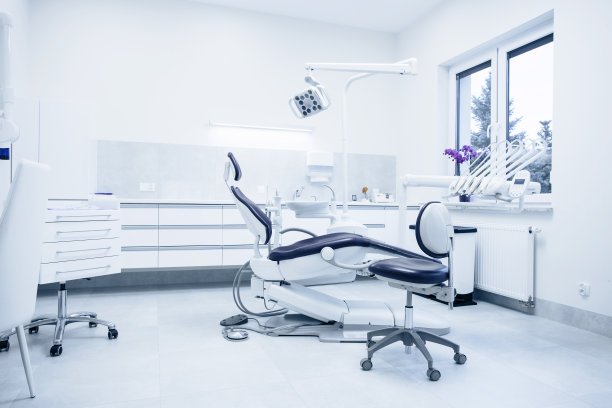Summary: Tooth extraction can be a daunting procedure, yet understanding the process and the essential aftercare can significantly enhance comfort and facilitate optimal healing. This article outlines the tooth extraction procedure, tailored pre-operative preparations, effective aftercare strategies, and the role of professional follow-up visits. By gaining insight into each aspect, patients will be better equipped to manage their recovery effectively, ensuring a smoother healing journey and less discomfort. Awareness of these factors can make a substantial difference in promoting recovery while minimizing potential complications.
1. Understanding the Tooth Extraction Process

The tooth extraction procedure is often necessary when a tooth is severely decayed, infected, or causes overcrowding. The process begins with a thorough examination, where the dentist assesses the tooth and surrounding areas using X-rays. The dentist will explain the procedure and address any concerns to ensure the patient is comfortable.
Anesthesia is administered to minimize discomfort during the extraction. Local anesthesia is typically used, which numbs the area around the tooth. In more complex cases, general anesthesia might be preferred to keep the patient unconscious throughout the procedure. Once the patient is adequately numbed, the dentist uses specialized instruments to loosen and remove the tooth carefully.
2. Pre-Operative Preparations for Patients
Preparing for a tooth extraction is essential to optimize comfort and outcomes. Patients should communicate openly with their dentist regarding their medical history, current medications, and any allergies. This information is crucial for selecting appropriate anesthesia and preventive measures against complications.
Additionally, patients are generally advised to avoid eating or drinking for several hours before the procedure, especially if sedation is involved. If patients take prescribed medications, they should seek guidance on whether to take them before the procedure.
Arranging for a friend or family member to accompany the patient is also recommended, as post-extraction recovery may affect mobility and consciousness, especially after sedation. Having someone present can ensure the patient gets home safely and has support when needed.
3. Effective Aftercare Strategies
Aftercare following a tooth extraction is vital in promoting healing and preventing infections. Initially, it is common to experience swelling and discomfort; therefore, applying ice packs to the outside of the cheek can help reduce swelling effectively. Patients should also follow their dentist’s instructions regarding pain management, often using over-the-counter pain relievers as needed.
Patients should avoid strenuous activities for the first 24 hours post-surgery to allow the body to focus on healing. It is crucial to keep the head elevated, even while resting, to minimize bleeding and swelling. Gradually, normal activities can be resumed as discomfort subsides.
4. Importance of Follow-Up Visits
Scheduling follow-up appointments with the dentist is an integral part of the post-extraction care plan. During these check-ups, the dentist can monitor the healing process, identify any potential complications, and provide additional instructions for care.
These visits are crucial, particularly if patients experience prolonged pain, excessive swelling, or if bleeding does not subside. The dentist can intervene promptly to address any issues that arise, ensuring patients do not suffer unnecessarily or face more severe complications.
Summary: The journey through tooth extraction—from understanding the procedure to implementing effective aftercare strategies—plays a pivotal role in ensuring optimal healing and comfort. By preparing properly and actively participating in aftercare, patients can significantly reduce discomfort and recovery time. Follow-up visits cement the foundation for a successful recovery, allowing for professional guidance and support tailored to individual needs. This article is compiled by Vickong Dental and the content is for reference only.
Vickong Dental
Vickong Dental is a large medical group established in Hong Kong in 2008 by professors from well-known medical universities in Guangdong and Hong Kong, as well as medical doctors from key national '985' universities (including Master's supervisors and senior professors). The chain of branches brings together expert dentists with PhDs and Master's degrees from Hong Kong and Mainland China, committed to providing high-quality dental treatment.
"Vickong Dental Practices the University Motto of 'Healing and Serving Society,' with a Stable Operation for Sixteen Years. It Has Been honored with Hong Kong Enterprise Leaders's Choice,' and is a Global Trusted Implant Center for the Nobel Implant System. Recommended by Hong Kong Metro Broadcast and Guangdong Television, it Serves Customers from Over Thirty Countries and Regions, Gaining the Trust and Favor of Citizens from the Guangdong-Hong Kong-Macau Greater Bay Area and Surrounding Cities.

Thousands of customers' unanimous praise
The most recognized and highly recommended dental service by customers in the Guangdong-Hong Kong-Macau Greater Bay Area
We Ensure You Receive Detailed Care and Attention Here
Hong Kong standards, Shenzhen prices, Your Trusted English-speaking dentists

Vickong Dental Medical-Grade Instrument Disinfection Process
Vickong Dental Medical-Grade Instrument Disinfection Process

Vickong Dental Chain: A Warm and Comfortable Environment for Treatment






Appointment Hours

Q&A
Why choose Vickong Dental?
Vickong Dental practices the university motto 「Medicine to Benefit Society」, with each branch bringing together highly qualified dentists with doctoral and master’s degrees from Hong Kong and the Mainland, and has maintained seventeen years of steady operation。Recipient of 「2024 Hong Kong Enterprise Leaders Brand」, 「2025 Hong Kong Enterprise Leaders Brand」, a Nobel Biocare Global Trusted Implant Center, and a brand recommended by Metro Radio Hong Kong and Guangdong TV。
To date, we have served customers from more than thirty countries and regions,earning exceptionally high word-of-mouth recognition and trusted recommendations from residents across the Guangdong-Hong Kong-Macao Greater Bay Area and surrounding cities
We have eight major branches in Zhuhai、Shenzhen,and a consultation and service assurance center in Hong Kong,so you can book a free consultation at any time for any questions,which is very reassuring.
If I do not accept the quotation after the CT scan, will I be charged??
No! As long as the actual treatment has not started, you will not be charged any fees.
Will there be any additional charges during the treatment process?
No, there won’t be any additional charges. Before treatment begins, we will clearly explain the treatment plan and its corresponding fees. Only after the patient agrees and signs the consent form will we proceed with the dental service.
Can I pay in Hong Kong dollars?
Yes. Vickong Dental accepts payment in Hong Kong dollars. The amount will be converted based on the exchange rate of the day, and the applicable rate will be clearly communicated to you in advance.
Can I reschedule my appointment at any time?
Yes. Please contact us via **WeChat** or **WhatsApp** as early as possible, providing your original appointment time and details, along with your preferred new date and time slot for rescheduling.













